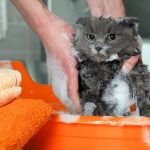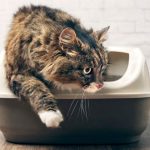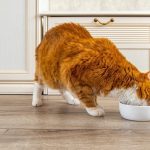It is essential to be cognizant of the possible milton sterilising fluid side effects that can arise when felines are exposed to sterilising fluids, which are a widespread item used for both medical and veterinary instruments.
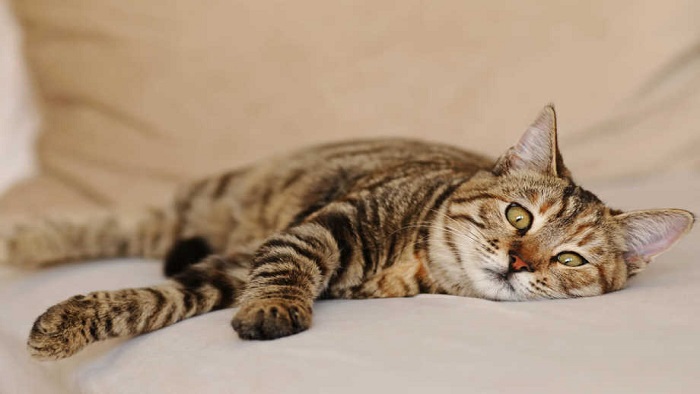
These fluids contain chemicals that can be toxic to cats and can result in skin irritation, inflammation, and respiratory difficulties. It is, therefore, important to exercise caution when using sterilising fluids and to seek veterinary advice if any signs of discomfort occur.
Potential Side Effects of Milton
Sterilising fluids can pose a risk to cats if they come into contact with it. Some of the potential side effects of sterilising fluids on cats include skin irritation and inflammation, respiratory problems, and the potential for toxic chemicals to enter the body.
The use of sterilising fluids around cats is not without possible side effects and to take proper precautions when using sterilising fluids around cats
Short-term effects:
Anesthesia: Cats are put under anesthesia during the surgery, and it can take some time for them to fully recover. They may be disoriented or unsteady on their feet for a few hours after the procedure.
Pain: While pain management is typically provided, some cats may experience discomfort or pain after the surgery. This can usually be managed with medication and will gradually subside over time.
Inflammation: The surgical site may be inflamed for a few days after the procedure. The veterinarian may recommend applying a warm compress or using an anti-inflammatory medication to reduce swelling.
Behavioral Changes: Cats may experience changes in behavior after the procedure. They may be more lethargic, less interested in food or play, or more irritable. These changes are usually temporary and will subside as the cat recovers.
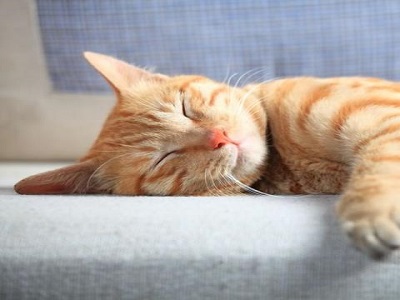
Long-term effects:
Reduced risk of certain health issues: Neutered and spayed cats are less likely to develop certain health issues, such as reproductive cancers and urinary tract infections.
Reduced roaming and spraying: Neutered and spayed cats are less likely to roam and exhibit spraying behavior, which can be disruptive and unpleasant.
Weight gain: Neutered and spayed cats may be more prone to weight gain, as their metabolism may slow down after the surgery. It is important to monitor their diet and exercise regularly to prevent obesity.
Changes in coat and behavior: Some cats may experience changes in their coat or behavior after the surgery. These changes are usually minor and do not impact their overall health or well-being.
Overall, sterilising fluids have both short-term and long-term effects on cats. You may observe some kind of discomfort or changes in behavior in the short-term, the long-term benefits of reduced health risks and behavioral issues make the procedure worth considering for many cat owners. It is imperative that you discuss the risks and benefits of the procedure with a veterinarian to make an informed decision.
Precautions for Using Sterilising Fluids
Sterilising fluids can be harmful to cats if they come into contact with it. It is important to take proper precautions when using sterilising fluids around cats, to ensure the safety of your pet.
This includes using the fluid in well-ventilated areas, keeping cats away from the fluid, wearing protective clothing and gloves, and cleaning up any spills immediately. Additionally, it is important to seek veterinary advice if any signs of discomfort occur after contact with the fluid
It is important to take proper precautions when using sterilising fluids around cats. These precautions include:
- Using sterilising fluids in well-ventilated areas
- Keeping cats away from sterilising fluids and any surfaces that have been in contact with them
- Wearing gloves when handling sterilising fluids
- Washing hands and any exposed skin after contact with sterilising fluids
- Wearing protective clothing when using sterilising fluids
- Making sure any spills are wiped up immediately
- Seeking veterinary advice if any signs of discomfort occur after contact with sterilising fluids
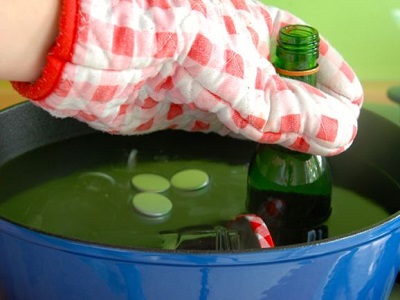
It is important to exercise caution when using sterilising fluids around cats. Ensure the area is well-ventilated, keep cats away from the fluids, and wear gloves and protective clothing.
Additionally, it is important to wipe up any spills immediately and seek veterinary advice if any signs of discomfort occur after contact with the fluid. Regularly cleaning and disinfecting your pet’s environment is also important, as it helps to reduce the risk of disease and infection.
Frequently Asked Questions
Q: Can Milton sterilising fluid be used to clean my cat’s toys or litter box?
A: No, it is not recommended to use Milton sterilising fluid to on items that come into contact with your cat. The fluid can be harmful if ingested or absorbed through the skin, and cats may be more sensitive to its effects than humans.
Q: What are the side effects of Milton sterilising fluid on cats?
A: If a cat ingests or comes into contact with Milton sterilizing fluid, it may experience symptoms such as vomiting, diarrhea, skin irritation, or respiratory distress. In severe cases, it could lead to organ damage or death.
Q: What should I do if my cat ingests Milton sterilising fluid?
A: If your cat ingests Milton sterilising fluid, contact your veterinarian immediately. They can provide guidance on the best course of action based on the severity of the exposure.
Q: Can I use Milton sterilising fluid to disinfect my cat’s food and water bowls?
A: No, it is not recommended to use Milton sterilising fluid on items that come into contact with your cat’s food or water. The fluid can leave a residue that could be harmful if ingested.
Q: What are some safer alternatives to Milton sterilising fluid for cleaning my cat’s items?
A: There are many cat-safe cleaning products available that are specifically designed for use on pet items. You can also use a mixture of white vinegar and water, or a mild soap and water solution, to clean your cat’s toys, litter box, and other items. Be sure to rinse thoroughly and allow items to dry completely before giving them back to your cat.
Conclusion
In conclusion, sterilising fluids can pose a risk to cats if they come into contact with them. It is important to use caution when using sterilising fluids and to seek veterinary advice if any signs of discomfort occur. With proper precaution, the side effects of sterilising fluid can be avoided, and cats can remain safe and healthy.

Brenda Castillo is a volunteer groomer of a local pet welfare group in New York and a regular contributor to CatLikesBest. She likes to read & write about cat grooming. She also guardians two chubby tabbies, Belly & Puma.

